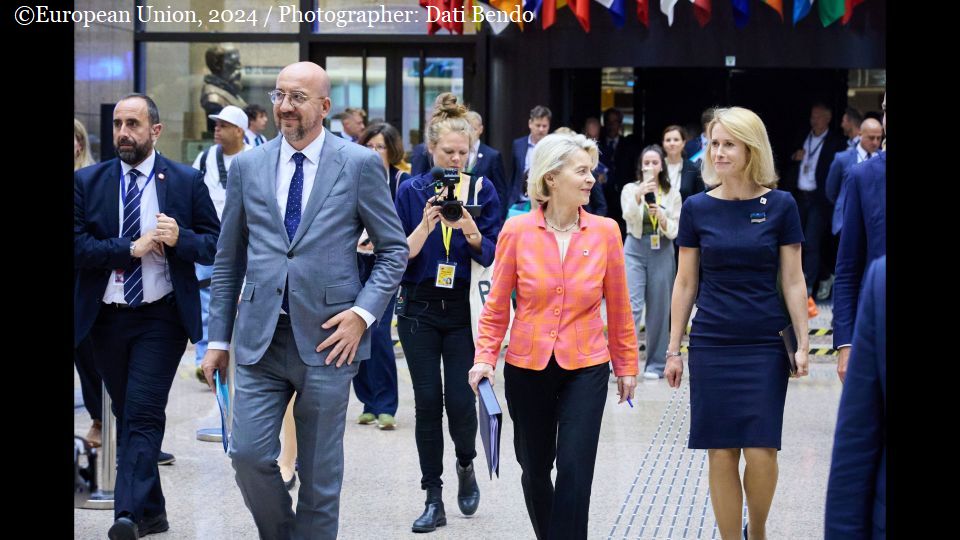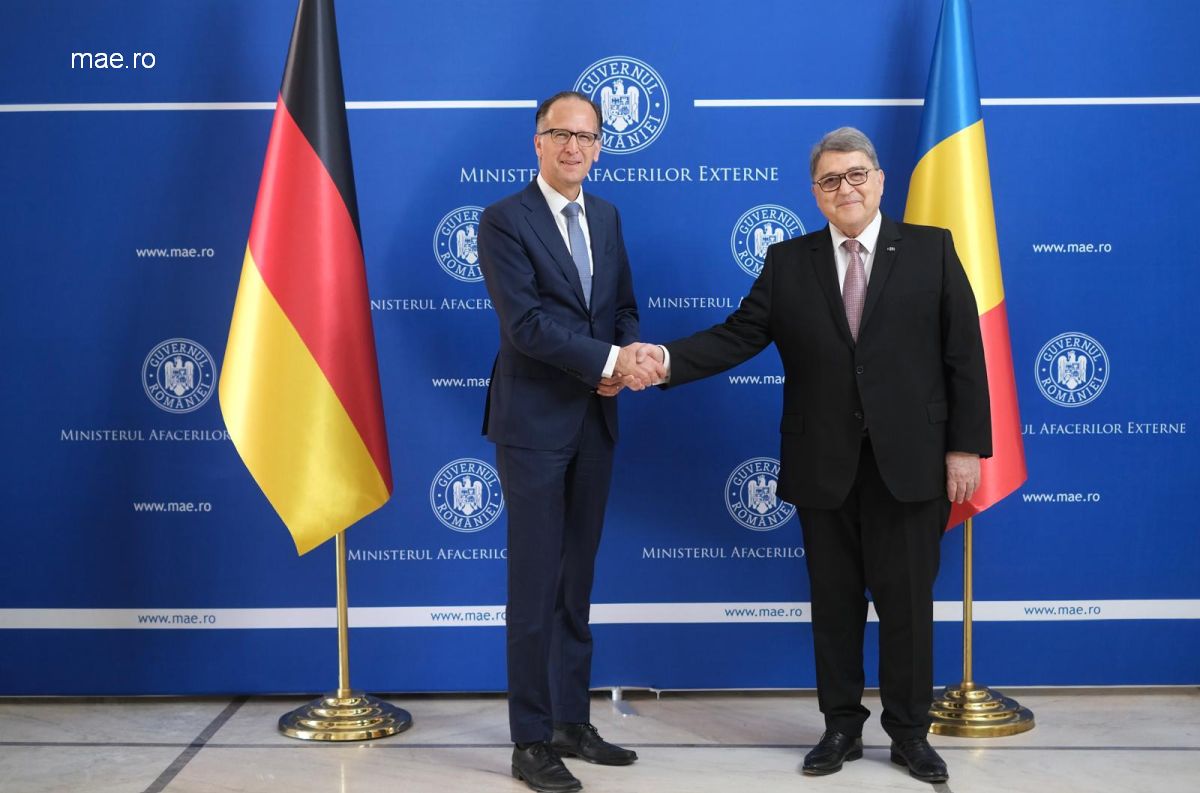Who are the new leaders of European institutions?
The President of Romania took part in the European Council meeting in Brussels, where the European leaders picked the next leaders of EU institutions

Corina Cristea, 28.06.2024, 13:50
Meeting for the second time after the European Parliament election at the start of June, EU leaders decided who will occupy the key positions in EU institutions. Ursula von der Leyen was nominated for the presidency of the Commission, Estonian Prime Minister Kaja Kallas for the position of EU High Representative for Foreign Affairs and Security Policy, and former Portuguese Prime Minister Antonio Costa will take over the presidency of the European Council. The three positions are thus divided between the three political groups that form the majority in the European Parliament – the European People’s Party, Renew and the Social-Democrats. As head of European diplomacy, Kaja Kallas will also have to tackle the issue of Union security.
“This is enormous responsibility in this time of geopolitical tensions. There’s war in Europe, there’s also growing instability globally that are also the main challenges of European foreign policy”.
The appointments were agreed on the sidelines of a negotiation meeting held within in a limited framework, attended by six European leaders from the three pro-European political groups, which favor the deepening of European integration and the consolidation of the EU’s prerogatives, something that irritated the head of the Italian government, Giorgia Meloni, who was left out of these talks. Negotiating the positions were German Chancellor Olaf Scholz, Spanish Prime Minister Pedro Sanchez, Polish and Greek Prime Ministers Donald Tusk and Kyriakos Mitsotakis, French President Emmanuel Macron and Dutch Interim Prime Minister Mark Rutte. Meloni, whose party is part of the European Conservatives and Reformists group in the European Parliament, said the six negotiators had formed an oligarchy to decide upon the next positions without taking into account will of citizens who voted in the European Parliament election of June 6-9. The election confirmed an increase in voters’ choices for Eurosceptic conservative parties, without, however, overturning the majority formed by the EPP, S&D and Renew. Leaders of EU member states also adopted the strategic agenda of the Union for the next five years, with economic competitiveness, the defense of democratic values, internal reforms for the expansion of the Union and security among the top priorities. The agenda also stipulates budget allocations for defense spending. According to Ursula von der Leyen, the EU needs an additional 500 bln EUR for defense in the next 10 years
Ukraine remains another priority, both in terms of EU accession and financial and military assistance. During talks regarding the EU Strategic Agenda, Romania’s president, Klaus Iohannis, said the document must reflect joint commitments to continue efforts towards a stronger, more resilient and more influential EU at global level. (VP)






























